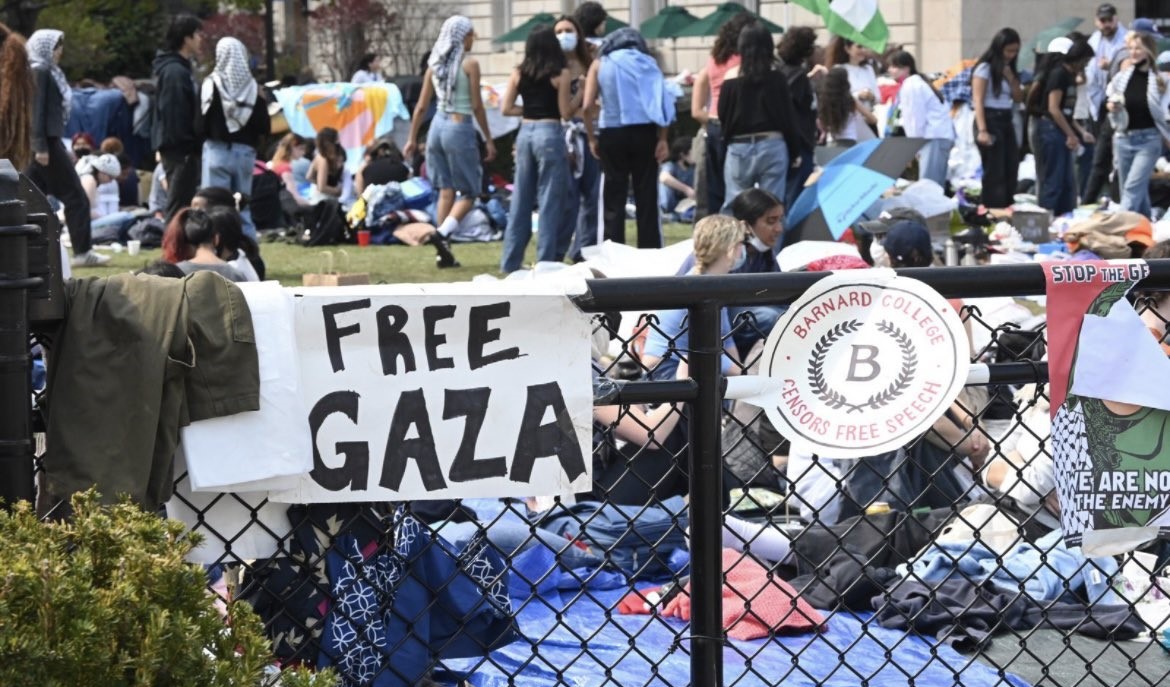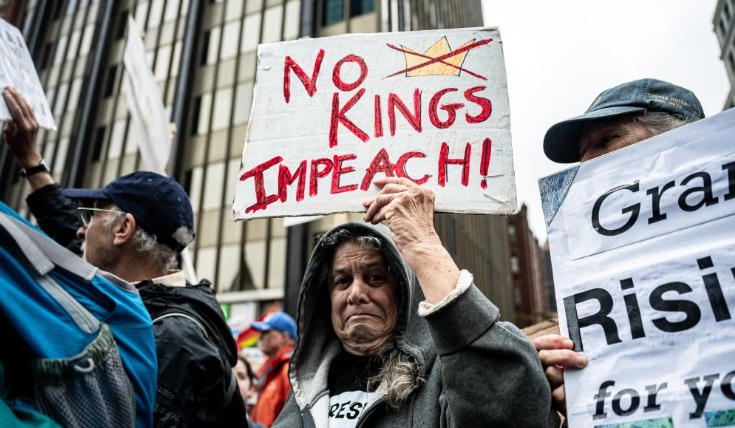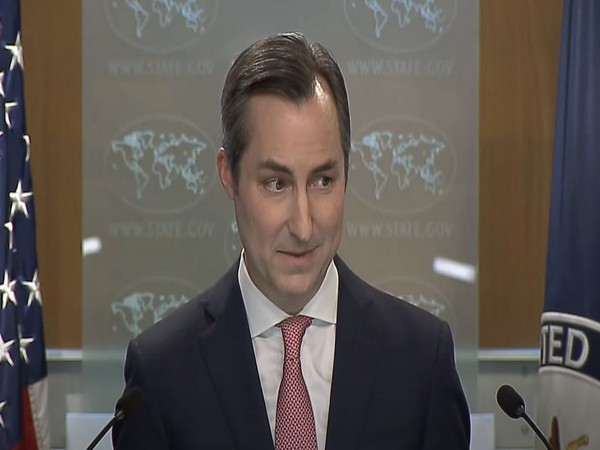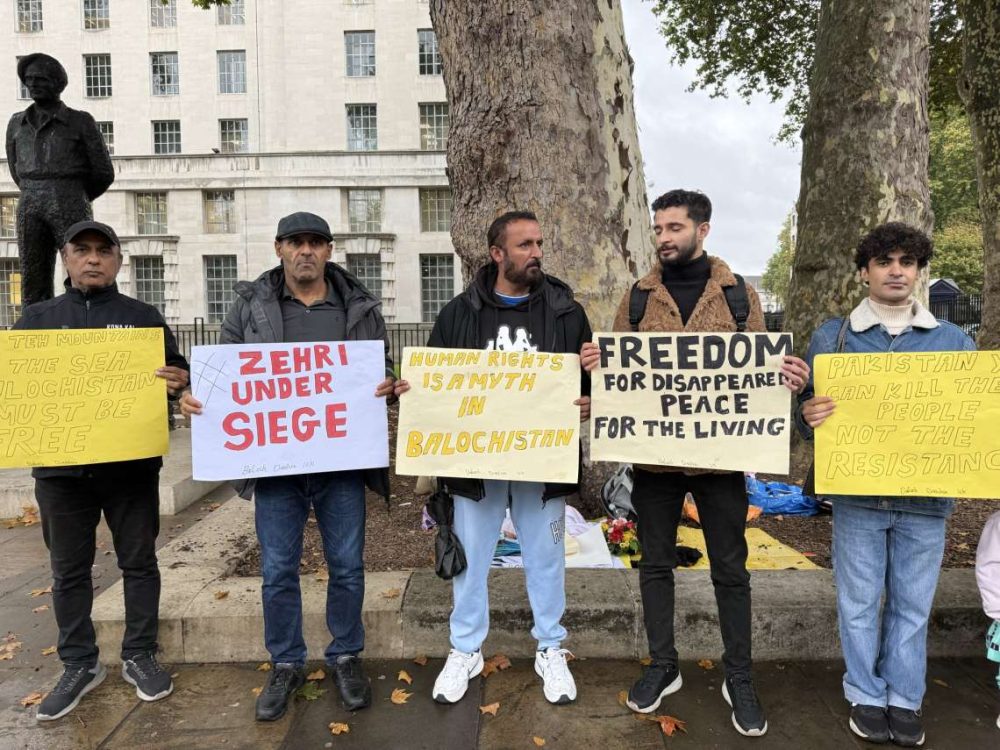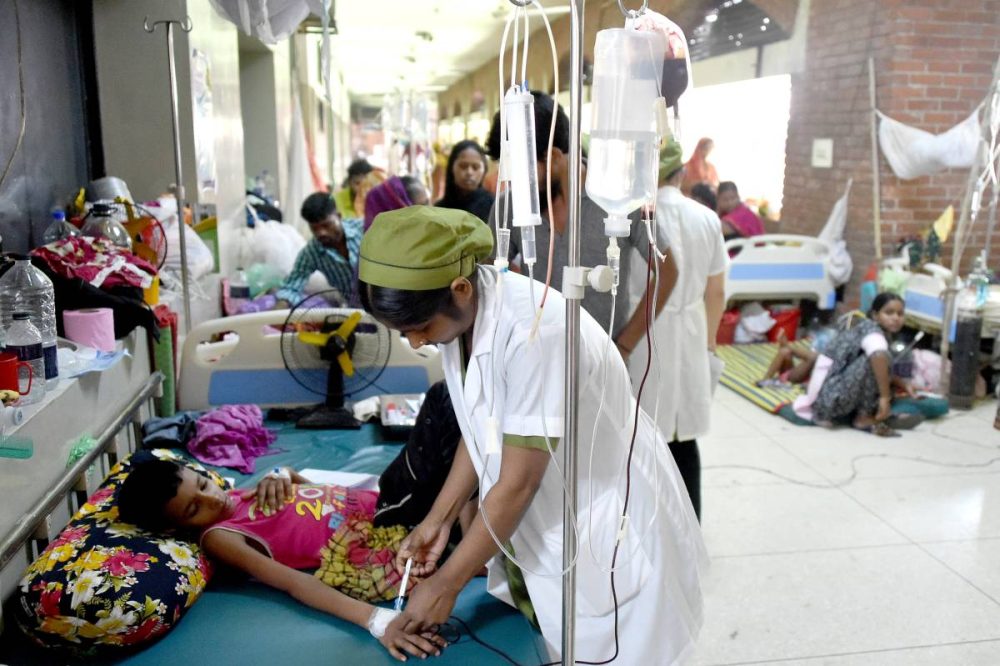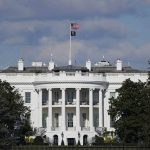More than 100 pro-Palestinian demonstrators who had camped out on Columbia’s green were arrested last week, and similar encampments have sprouted up at universities around the country…reports Asian Lite News
Columbia canceled in-person classes, dozens of protesters were arrested at New York University and Yale, and the gates to Harvard Yard were closed to the public Monday as some of the most prestigious U.S. universities sought to defuse campus tensions over Israel’s war with Hamas.
More than 100 pro-Palestinian demonstrators who had camped out on Columbia’s green were arrested last week, and similar encampments have sprouted up at universities around the country as schools struggle with where to draw the line between allowing free expression while maintaining safe and inclusive campuses.
At New York University, an encampment set up by students swelled to hundreds of protesters throughout the day Monday. The school said it warned the crowd to leave, then called in the police after the scene became disorderly and the university said it learned of reports of “intimidating chants and several antisemitic incidents.” Shortly after 8:30 p.m., officers began making arrests.
“It’s a really outrageous crackdown by the university to allow the police to arrest students on our own campus,” said New York University law student Byul Yoon.
“Antisemitism is never ok. That’s absolutely not what we stand for and that’s why there are so many Jewish comrades that are here with us today,” Yoon said
The protests have pitted students against one another, with pro-Palestinian students demanding that their schools condemn Israel’s assault on Gaza and divest from companies that sell weapons to Israel. Some Jewish students, meanwhile, say much of the criticism of Israel has veered into antisemitism and made them feel unsafe, and they point out that Hamas is still holding hostages taken during the group’s Oct. 7 invasion.
Tensions remained high Monday at Columbia, where the campus gates were locked to anyone without a school ID and where protests broke out both on campus and outside.
U.S. Rep. Kathy Manning, a Democrat from North Carolina who was visiting Columbia with three other Jewish members of Congress, told reporters after meeting with students from the Jewish Law Students Association that there was “an enormous encampment of people” who had taken up about a third of the green.
“We saw signs indicating that Israel should be destroyed,” she said after leaving the Morningside Heights campus. Columbia announced Monday that courses at the Morningside campus will offer virtual options for students when possible, citing safety as their top priority.
A woman inside the campus gates led about two dozen protesters on the street outside in a chant of, “From the river to the sea, Palestine will be free!” — a charged phrase that can mean vastly different things to different groups. A small group of pro-Israel counter demonstrators protested nearby.
University President Minouche Shafik said in a message to the school community Monday that she was “deeply saddened” by what was happening on campus.
“To deescalate the rancor and give us all a chance to consider next steps, I am announcing that all classes will be held virtually on Monday,” Shafik wrote, noting that students who don’t live on campus should stay away.
Protests have roiled many college campuses since Hamas’ deadly attack on southern Israel, when militants killed about 1,200 people, most of them civilians, and took roughly 250 hostages. During the ensuing war, Israel has killed more than 34,000 Palestinians in the Gaza Strip, according to the local health ministry, which doesn’t distinguish between combatants and non-combatants but says at least two-thirds of the dead are children and women.
On Sunday, Elie Buechler, a rabbi for the Orthodox Union’s Jewish Learning Initiative at Columbia, sent a WhatsApp message to nearly 300 Jewish students recommending they go home until it’s safer for them on campus.
The latest developments came ahead of the Monday evening start of the Jewish holiday of Passover.
The protest encampment sprung up at Columbia on Wednesday, the same day that Shafik faced bruising criticism at a congressional hearing from Republicans who said she hadn’t done enough to fight antisemitism. Two other Ivy League presidents resigned months ago following widely criticized testimony they gave to the same committee.
In her statement Monday, Shafik said the Middle East conflict is terrible and that she understands that many are experiencing deep moral distress.
“But we cannot have one group dictate terms and attempt to disrupt important milestones like graduation to advance their point of view,” Shafik wrote.
Over the coming days, a working group of deans, school administrators and faculty will try to find a resolution to the university crisis, noted Shafik, who didn’t say when in-person classes would resume.
U.S. House Republicans from New York urged Shafik to resign, saying in a letter Monday that she had failed to provide a safe learning environment in recent days as “anarchy has engulfed the campus.”
In Massachusetts, a sign said Harvard Yard was closed to the public Monday. It said structures, including tents and tables, were only allowed into the yard with prior permission. “Students violating these policies are subject to disciplinary action,” the sign said. Security guards were checking people for school IDs.
ALSO READ: India second largest source of new citizens for US


